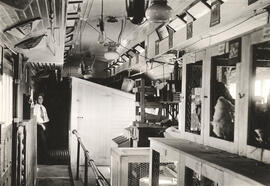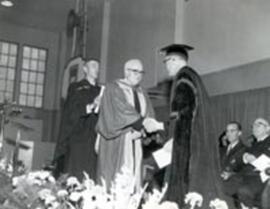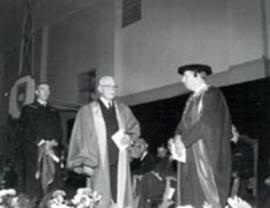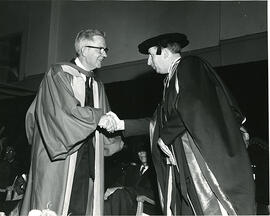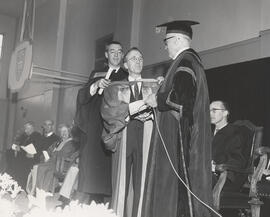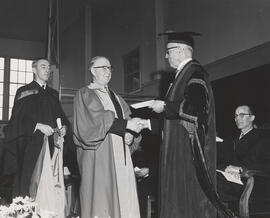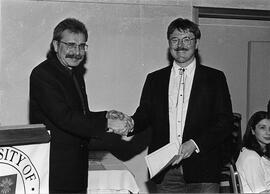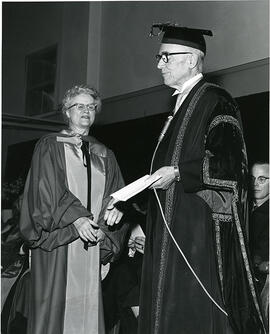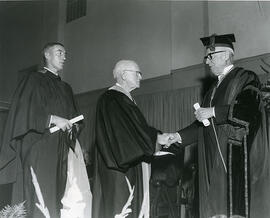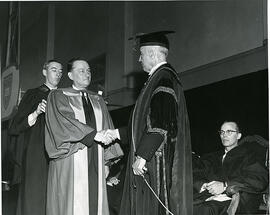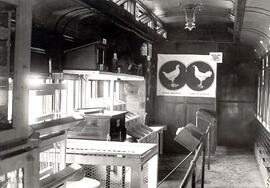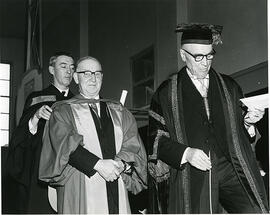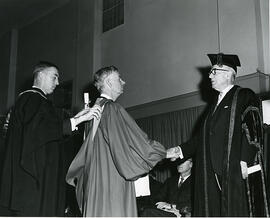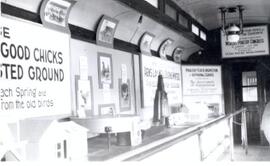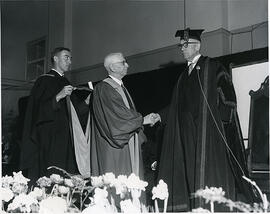Better Farming Train - Cars - Interior
- A-1461
- Pièce
- [between 1914 and 1922]
Fait partie de University of Saskatchewan Photograph Collection
Unidentified man standing in the Poultry Car of the Better Farming Train.
Bio/Historical Note: From 1914 to 1922 a Better Farming Train (BFT) toured the province providing lectures and demonstrations and presenting exhibits on matters pertaining to agriculture. Funded by the Agricultural Instruction Act, equipped jointly by the Department of Agriculture and the College of Agriculture, and staffed by the University of Saskatchewan, the BFTs were operated free of charge by the railways. Consisting of between 14 to 17 cars they toured the province for several weeks each summer. During part of one summer two trains operated. The train was divided into five sections: Livestock; Field Husbandry; Boys and Girls; Household Science; Poultry; and Farm Mechanics. A converted flat car acted as a platform for the display and demonstration of the "well-selected" horses, cattle, sheep, swine and poultry. Each section usually contained a lecture car accompanied by one or more demonstration cars.

